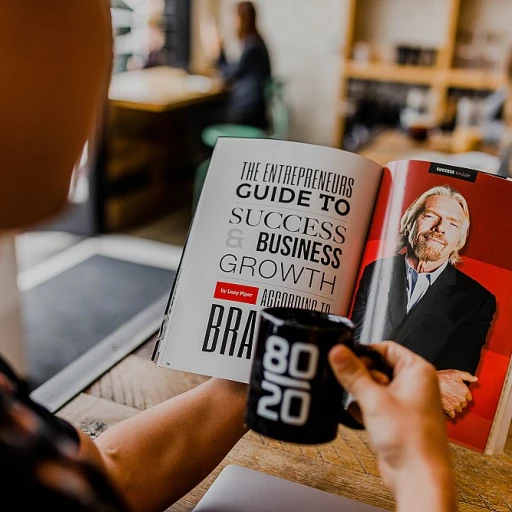Understanding the Importance of Candidate Experience
The Significance of a Positive Candidate Experience
Understanding the importance of candidate experience is crucial for both job seekers and organizations. A positive candidate experience can significantly impact a company's ability to attract top talent. It entails all the interactions a candidate has with a prospective employer during the hiring process—from the first job application to their final interview.
For employers, a well-managed experience means optimizing each stage of the hiring process with clear communication and responsiveness, which can help determine an organization's reputation in the job market. Meanwhile, job seekers benefit from understanding that their treatment during interviews with hiring managers or recruiters is a reflection of the company's culture and values.
Moreover, this experience can either bolster or hinder a company's image. Negative experiences can lead potential candidates to turn away from applying, possibly even tarnishing the organization's reputation through word-of-mouth or online platforms. On the other hand, a smooth, transparent recruitment process serves as a good sign of a well-organized company that values its employees and future hires.
The role of questions in shaping the candidate experience cannot be overstated. Preparing for an interview means not just answering questions but also being equipped with good questions to ask a potential employer. Job seekers should consider the questions recruiter pose as a means to gauge the work culture and company values, which can be as important as salary range or job description details.
For companies, creating a fluid and thoughtful interview process involves designing recruiter interview questions that reflect the organization's values, mission, and role expectations. These questions, when crafted effectively, not only fill the position with the best candidate but also invite candidates to engage and assess the suitability of the prospective role or company.
Practices such as maintaining a user agreement or privacy policy transparency can further enhance trust and comfort for candidates engaging in the interview process. More about elevating the candidate experience through effective HR communication can be explored
here.
The Role of Questions in Shaping Candidate Experience
Influence of Questions on the Candidate Experience
Navigating the hiring landscape often hinges on the tone and substance of the questions exchanged between candidates and recruiters. Thoughtful questions during a job interview can offer job seekers a detailed look into the company culture and the specific role they are considering. This dialogue can be a two-way street—not only do candidates gain insights, but recruiters can also assess how well a candidate understands the company and the position. A well-timed question can be a good sign of a candidate's interest and initiative.
Companies invest heavily in shaping a positive candidate experience, and a significant part of this investment is reflected in the interview process. Recruiters and hiring managers play a pivotal role. Questions recruiter ask candidates help determine not just skills, but also cultural fit and potential career growth within the organization. Conversely, questions from candidates can gauge if the role and the company's values align with their personal and professional aspirations.
Throughout the hiring process, candidates often wonder what makes good questions. A helpful approach is to focus on questions that reveal the nuances of the job, the dynamics of the team, or the expectations from the role. For instance, asking about the manager's leadership style or the challenges the team faces can provide deeper insights.
To further enhance the interview process, practices such as candidate self-scheduling can streamline the hiring journey, offering flexibility and reducing stress for candidates and recruiters alike. Learn more about how self-scheduling can improve the interview experience
here.
Ultimately, the importance of questions in shaping candidate experience cannot be overstated. Both recruiters and job seekers should approach interviews as collaborative dialogues, where the right questions can illuminate paths to mutual success.
Types of Questions to Ask Recruiters
Exploring Critical Inquiries for Recruiters
In the evolving landscape of job interviews, the types of questions job seekers should ask recruiters have become incredibly vital not only as a means to gather information but also to gauge the overall fit within the company culture and the position in question. As discussed, questions play a crucial role in shaping the candidate experience and can significantly influence perceptions of both the organization and the hiring process.
Understanding what questions to ask can help determine your compatibility with the role and the company. Here are some essential categories of questions to consider during your recruiter interview:
- Company Culture and Values: These questions reveal the work environment and what the organization stands for. Inquiring about core values, employee satisfaction, and team dynamics can provide insights into daily life at the company. This can help identify the signs of a good organizational fit.
- Role Specifics and Expectations: Clarify the job description by asking about daily responsibilities, key challenges, and success metrics for the position. It's also prudent to inquire if the role frequently interacts with other departments or hiring managers, enhancing collaboration insights.
- Recruitment Process Details: Understanding the full recruitment journey, including the number of interview stages, typical timelines, and feedback processes, can set proper expectations and reduce anxiety. Questions about privacy policy and user agreement in the context of personal data handling during this process are also crucial.
- Advancement Opportunities: To assess growth potential, ask about training programs, performance evaluation methods, and career progression. This helps in planning a long-term career path within the company.
- Compensation and Benefits: Delicately approach topics such as salary range and benefits to ensure your expectations align with the company's offerings without appearing solely driven by compensation.
While these are good questions to raise, it's equally important to tailor your inquiries to the specific context of the job interview. Being prepared with thoughtful questions demonstrates genuine interest and enhances the impression you leave on hiring managers. Moreover, some
interview process adjustments can influence the effectiveness of the questions you choose to ask. This nuanced approach can contribute significantly to making you a standout candidate in any hiring process.
Common Mistakes in Questioning Recruiters
The Pitfalls of Ineffective Interview Questions
Navigating an interview is a critical step in the hiring process for both job seekers and recruiters. However, candidates sometimes fall into the trap of asking ineffective questions that do not enhance their understanding of the role or the company's culture. To help avoid these pitfalls, it's crucial to recognize common mistakes in questioning recruiters.
- Overly General Inquiries: Asking broad questions like "What is the company culture?" or "Can you tell me about this job?" can result in generic responses that fail to provide specific insights about the organization or position. It's important to prepare interview questions that are detailed and targeted to gather meaningful information.
- Lack of Research: Job seekers often ask questions that could easily be answered by reviewing the company's website, the job description, or recent news articles. Such questions can indicate a lack of preparation or interest in the job and may negatively impact the interviewer's impression.
- Focus Solely on Compensation: Inquiries that emphasize only the salary range can sometimes overshadow the broader conversation about the role and the experiences it offers. While it's important to understand the financial aspects of a position, balancing it with questions about growth opportunities or company values is crucial.
- Misinterpretation of Privacy Policies: Asking questions that seem to overlook the company’s privacy policies or user agreement can put the interviewer in an uncomfortable position. Candidates should frame their questions with sensitivity towards these considerations, ensuring they respect the organization's confidentiality terms.
- Neglecting to Inquire About the Process: Failing to ask about the next steps in the hiring process or how the interviewer's feedback will be communicated can leave candidates in the dark about their potential future with the company. It’s a good practice to seek clarity on the timeline and the involvement of the hiring manager in upcoming stages.
Recognizing these mistakes and understanding how to avoid them can greatly improve a candidate's interview experience and contribute to a more fluid and productive dialog during recruiter interviews. Properly crafted questions not only demonstrate preparedness but also reflect a candidate’s genuine interest in the organization and the role they are applying for.
Best Practices for Candidates When Asking Questions
Maximizing the Effectiveness of Candidate Questions During Interviews
Engaging with recruiters and hiring managers through well-prepared questions is a critical opportunity to showcase not only your interest in the position but also your fit for the company's culture and values. Here are a few best practices to help you make the most of this stage in the hiring process:
- Research Thoroughly: Before stepping into an interview, conduct comprehensive research on the company, job description, and industry landscape. Understanding the organization’s goals and the challenges it seeks to address will help you ask insightful questions that demonstrate your enthusiasm and alignment with their mission.
- Focus on Role and Impact: Ask questions that will help determine how the position contributes to the team and organization. Inquiring about specific responsibilities or the potential impact of the role can give you a clearer picture of your day-to-day activities and future growth within the company.
- Cultural Fit: Express curiosity about the company culture by asking the recruiter to describe it or discussing how the team collaborates. This not only shows your interest but also helps you assess whether you’ll thrive in that environment.
- Long-Term Opportunities: Questions about future projects or advancement prospects can signal to hiring managers your long-term commitment and ambition. It also helps you gauge whether the company’s future aligns with your career aspirations.
- Clarify the Interview Process: Understanding the subsequent stages of the hiring process, including any additional interviews or assessments, allows you to prepare effectively. This also demonstrates to the recruiter your eagerness to continue moving forward in the application process.
- Address Logistical Concerns: Don’t hesitate to inquire about practical aspects like work location flexibility or the salary range, especially if they weren’t covered in the job description. These questions can provide crucial information for your decision-making.
Ultimately, the questions you bring to the table can reflect your level of preparedness and your potential impact on the organization. While common mistakes in questioning recruiters can derail your prospects, well-crafted inquiries can enhance your candidate experience significantly.
The Future of Candidate Experience: Trends and Innovations
Emerging Trends and Innovations in Candidate Experience
As we look to the future of candidate experience, it's crucial to note that it is continuously evolving alongside advancements in technology and organizational strategies. Recruiters and hiring managers are leveraging these changes to create a more seamless and engaging hiring process for job seekers.
One of the significant trends reshaping candidate experience is the integration of artificial intelligence in recruiting. AI tools are increasingly being used to streamline the interview process, assist recruiters in filling positions more efficiently, and ensure consistent communication with candidates. AI can help determine which interview questions are most effective and tailor them to match the company culture and job description.
Privacy and data usage is another area that is gaining traction. As more companies automate their recruiting processes, there is an increased focus on adhering to privacy policies and ensuring that the handling of candidates' information aligns with user agreements.
Furthermore, the candidate experience is being enhanced through more personalized engagements. Organizations are adopting strategies that prioritize transparency and authenticity, allowing candidates to better understand the culture and expectations of the role they're applying for.
Another noteworthy development is the rise of remote work opportunities, which opens up possibilities for global recruitment and diverse talent acquisition. Candidates have more options in their job search, and companies are adapting their hiring process to accommodate remote interviews and offer flexibility in working arrangements.
Future innovations in candidate experiences will likely focus on improving the interview questions, enhancing recruiter-candidate communications, and refining the overall journey from phone screens to final offers. Organizations that embrace these trends will position themselves as top employers, attracting high-caliber talent and improving their competitive edge in the hiring market.














